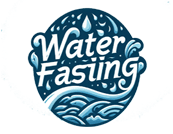Introduction: What Happens When You Fast Too Long?
Water fasting has become a global health trend, promising weight loss, detoxification, and mental clarity. However, when taken too far, it can cause serious health issues. While short-term fasting helps cleanse the body, long-term water fasting can lead to nutrient deficiencies, fatigue, and even organ stress.
This article explains the side effects of long-term water fasting, step-by-step safety measures, and answers to common questions — so you can practice fasting wisely.

Main Points: Understanding the Risks of Long-Term Water Fasting
1. What Is Water Fasting?
Water fasting means consuming only water for a specific duration. Although it gives your digestive system a rest, fasting beyond 48–72 hours can deprive your body of essential nutrients and energy.
2. Nutrient Deficiency
A major side effect of long-term water fasting is severe nutrient deficiency. Without proteins, fats, and vitamins, your body begins to consume muscle tissue, weakening your immune system and causing extreme tiredness.
3. Electrolyte Imbalance
During extended water fasting, minerals like potassium, sodium, and magnesium drop. This imbalance can cause dizziness, muscle cramps, irregular heartbeat, and even fainting.
4. Muscle and Bone Weakness
Prolonged water fasting leads to muscle loss and reduced bone density. Over time, this can result in weakness, pain, and a higher risk of fractures.
5. Slower Metabolism
When the body senses starvation, it enters “survival mode.” Long-term water fasting slows your metabolism, making post-fasting weight gain more likely.
6. Emotional and Mental Effects
Low energy and lack of nutrients can affect brain chemistry, leading to mood swings, anxiety, and brain fog.
7. Stress on Vital Organs
Your liver and kidneys are natural detoxifiers. When you overdo water fasting, these organs work harder without proper nutrition, which can cause long-term damage.
Step-by-Step Guide: How to Avoid the Side Effects of Water Fasting
Step 1: Consult a Professional
Before starting water fasting, seek medical guidance—especially if you have heart issues, diabetes, or low blood pressure.
Step 2: Begin Gradually
Start with intermittent fasting (16 hours fasting, 8 hours eating). Slowly extend to one-day water fasts but never exceed 72 hours without supervision.
Step 3: Stay Hydrated
Drink clean water frequently but avoid overhydration, which can dilute essential salts and worsen electrolyte imbalance.
Step 4: Recognize Warning Signs
If you experience dizziness, nausea, or irregular heartbeat during water fasting, stop immediately and reintroduce light foods.
Step 5: Break the Fast Carefully
After water fasting, eat light and soft foods such as fruit juices, soups, and boiled vegetables. Avoid processed or fried foods to protect your digestive system.

Step 6: Restore Nutrients
On non-fasting days, eat foods rich in vitamins, minerals, and proteins. This helps rebuild strength and keeps your metabolism balanced.
Frequently Asked Questions About Water Fasting
Q1: How long can I safely do water fasting?
Most people can safely fast for 24–48 hours. Anything longer should be monitored by a doctor.
Q2: Can long-term water fasting damage my organs?
Yes. Overdoing water fasting can cause liver and kidney strain, leading to long-term organ fatigue.
Q3: Why do I feel dizzy during fasting?
Dizziness occurs when blood sugar and electrolytes drop — a sign that your body needs nutrients.
Q4: Does water fasting permanently help with weight loss?
Not necessarily. Long-term water fasting slows metabolism, and weight may return quickly after you resume eating.
Q5: What’s a safer alternative to long-term fasting?
Try shorter fasts, balanced diets, herbal teas, and hydration to achieve a healthy detox without the risks.
While water fasting can refresh your system, long-term fasting can do more harm than good. The side effects of long-term water fasting include muscle loss, fatigue, and weakened immunity.
Your body is naturally designed to cleanse itself — it just needs balance, hydration, and nutrition. Remember: true wellness isn’t about deprivation but moderation. A few mindful days of water fasting can benefit you, but weeks without nutrients can break your strength and health.
So, fast smart, stay hydrated, and listen to your body — because lasting health comes from wisdom, not extremes.

